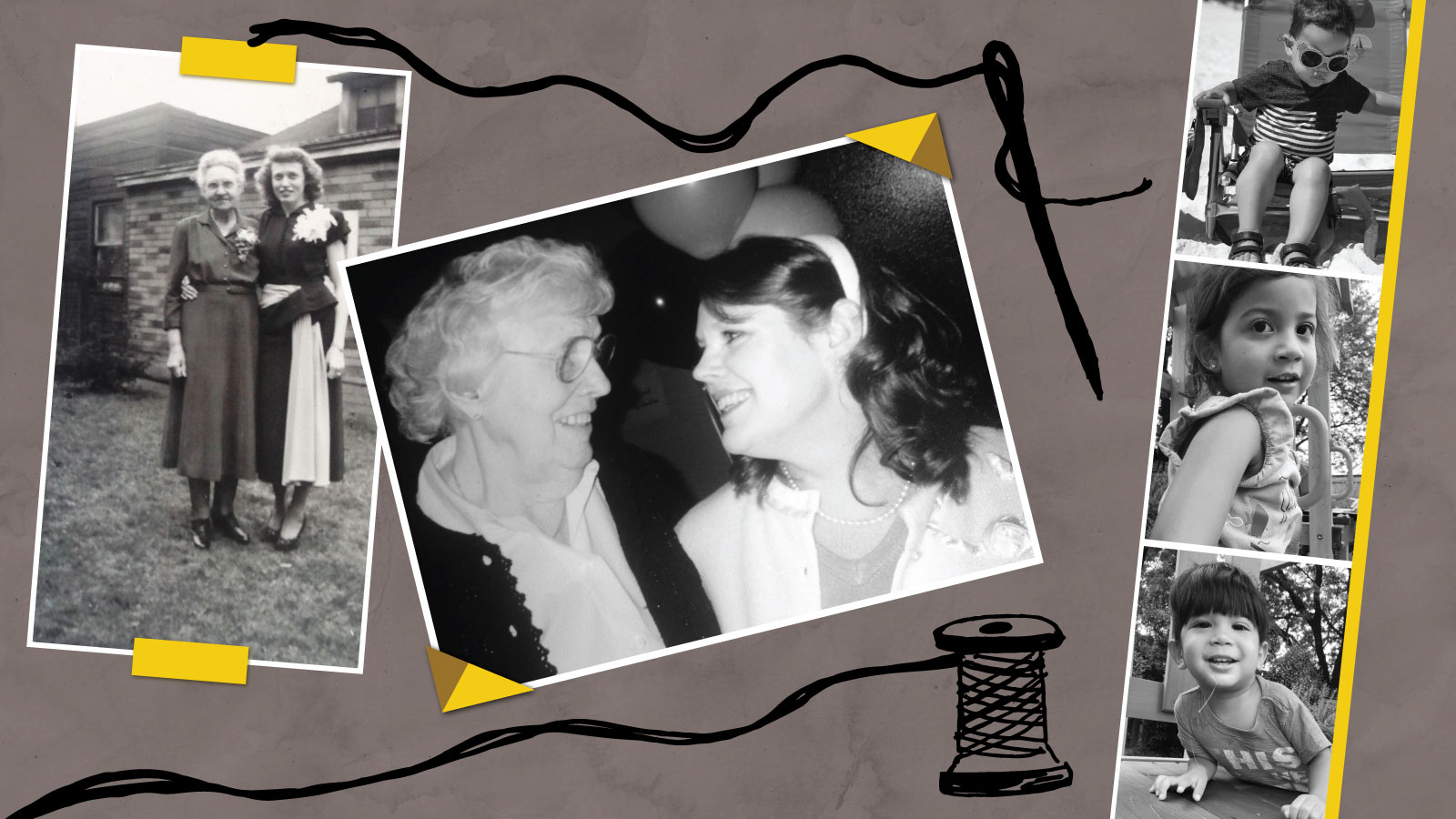As a Chicago teen in the 1960s, Susan Goldberg perfected the art of rolling her eyes at her mother, who seemed stuck in 19th-century ways. Her friends’ families were enjoying the conveniences of modern living, such as buying soap from the grocery store. But Susan’s mom, Margaret, was still making soap at home out of rendered pork fat.
To Susan, her mom’s penchant for reusing every bit of plastic or fabric that came through the door seemed out of step with the new world of disposable plastic and single-use consumer goods. But Margaret was just carrying on the homemaking skills she’d learned from her own mom, Susan’s grandmother, Marie.
Born in Iowa in 1887, Marie grew up in a time when few could have foreseen the existential crisis that burning fossil fuels would cause — yet concentrations of carbon pollution in the atmosphere had already begun to slowly creep up.
Back then, what’s now called “living sustainably” was really just “living.” Marie took care of her home the way many people did — growing and preserving food from her garden, darning socks instead of buying new ones, and collecting rainwater to do laundry.
“My uncle would always bring my grandma whole-wheat flour in 50-pound flour sacks,” Susan Goldberg said. “She baked the most amazing breads, pies, cakes, cookies — everything — almost every day in her kitchen with natural flour. And then she’d use the fabric sacks the flour came in to make tons of quilts, clothes, aprons — anything you could think of out of this fabric, so it was constantly recycled into something useful.”
As Susan grew into early adulthood, she found that she loved the feeling of turning an old curtain into a beautiful new dress or reusing business envelopes to write letters to her aunt. She dropped the eye-rolling and embraced her mom and grandma’s thrifty sensibilities.
And when she became a mother herself, she taught her own kids simpler ways of living.
Becoming a grandparent amid the climate crisis
Susan made a living as a writer and later as a Unitarian Universalist minister in Prague, where she cultivated a congregation that valued living in harmony with nature. She grew alarmed about climate change years before it would become a mainstream concern.
“I worried about the ice caps melting and water levels rising and people who live in coastal areas being drowned out of their houses,” she said. “I worried about the higher temperatures, and people dying of heat during summer, all those things.”
Then, as the impacts of climate change intensified, Susan became a grandparent.
In 2019, she moved back from Prague to the Midwest to be closer to her young grandchildren — Ruby, Elias, Eva, and Elliot, now between two and four years old. All will come of age in the decade that will make or break the urgent effort to slash carbon emissions and reach a more stable climate.
“No attuned person can deny that we live in a world in crisis. What is it going to be like when I‘m gone and the kids are going to be my age?” she said. “What will the Earth look like?”
“You wake your child, get them dressed for school, pack a lunch and kiss goodbye,” she said. “Then you hope they get home safely, that you don’t get a call saying that a severe storm washed the school bus out to sea, or that the dry old school building burned down in a fire.”
Susan found even more time to worry about climate change in 2020 and much of 2021, when COVID-19 kept her isolated at home, unable to see family.
Easing the emotional toll of climate change
As the months of isolation dragged on, Susan took to internet boards. There she found camaraderie with others concerned about climate change. In reading and writing about how people can reduce their own carbon footprint, she began to renew her own sense of hope for the future.
She also took inspiration from the preaching of minister Michael Dowd.
“There’s this notion that there are only two choices — that either you’re scared to death and deprive yourself of everything because you feel guilty, or that you just dismiss it all as ridiculous and go on living without care,” she said.
‘Do your best about the challenges we face, but also try to enjoy your life … and try to not be too flipped out by it all.’
“Instead, his sermon says, do your best about the challenges we face, but also try to enjoy your life … and try to not be too flipped out by it all.”
In her online Unitarian Universalist communities, Susan writes to help connect others in finding and sharing ways to make a difference. For example, she’s proud of her son, a mixologist in Chicago who has masterminded a 100% farm-to-table cocktail menu.
She believes these types of climate-conscious actions — inspired in part by her grandma’s 1800s lifestyle — can help future generations navigate the 21st century and beyond. As they get older, Susan hopes to show her own grandchildren more back-to-the-earth ways of living, from growing their own food to using rain barrels.
She also plans eventually to talk with them directly about climate change. But for now, she sticks to the basics of being a good human: “Don’t hurt anything no matter how small,” she said. “All our actions have consequences — so let’s make them the good kinds.”
Her long-overdue reunion with her family finally came at Thanksgiving 2021, when she presented her grandchildren with personalized backpacks. Homemade from repurposed scraps of fabric, the backpacks are a colorful homage to the flour-sack clothes her own grandmother had sewn a century ago.
Know someone who ought to be profiled in Climate Personals? Nominate that person by sending an email to [email protected].
Source link


